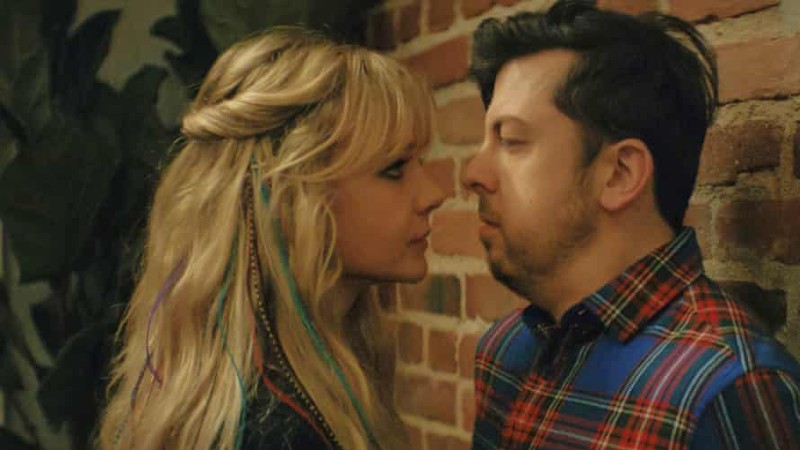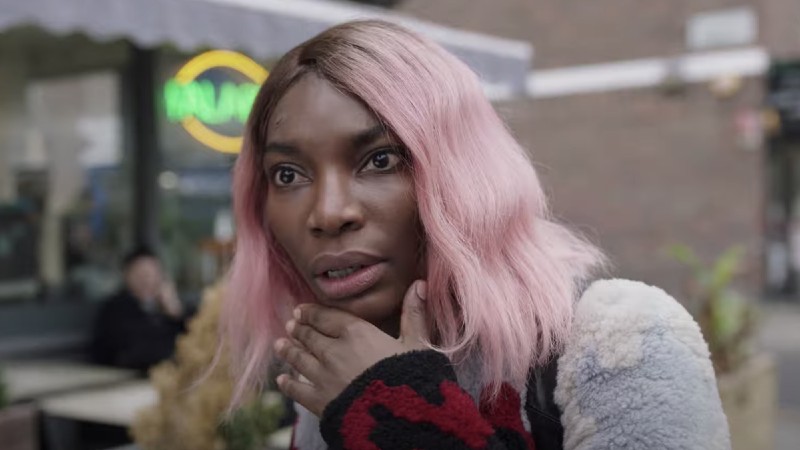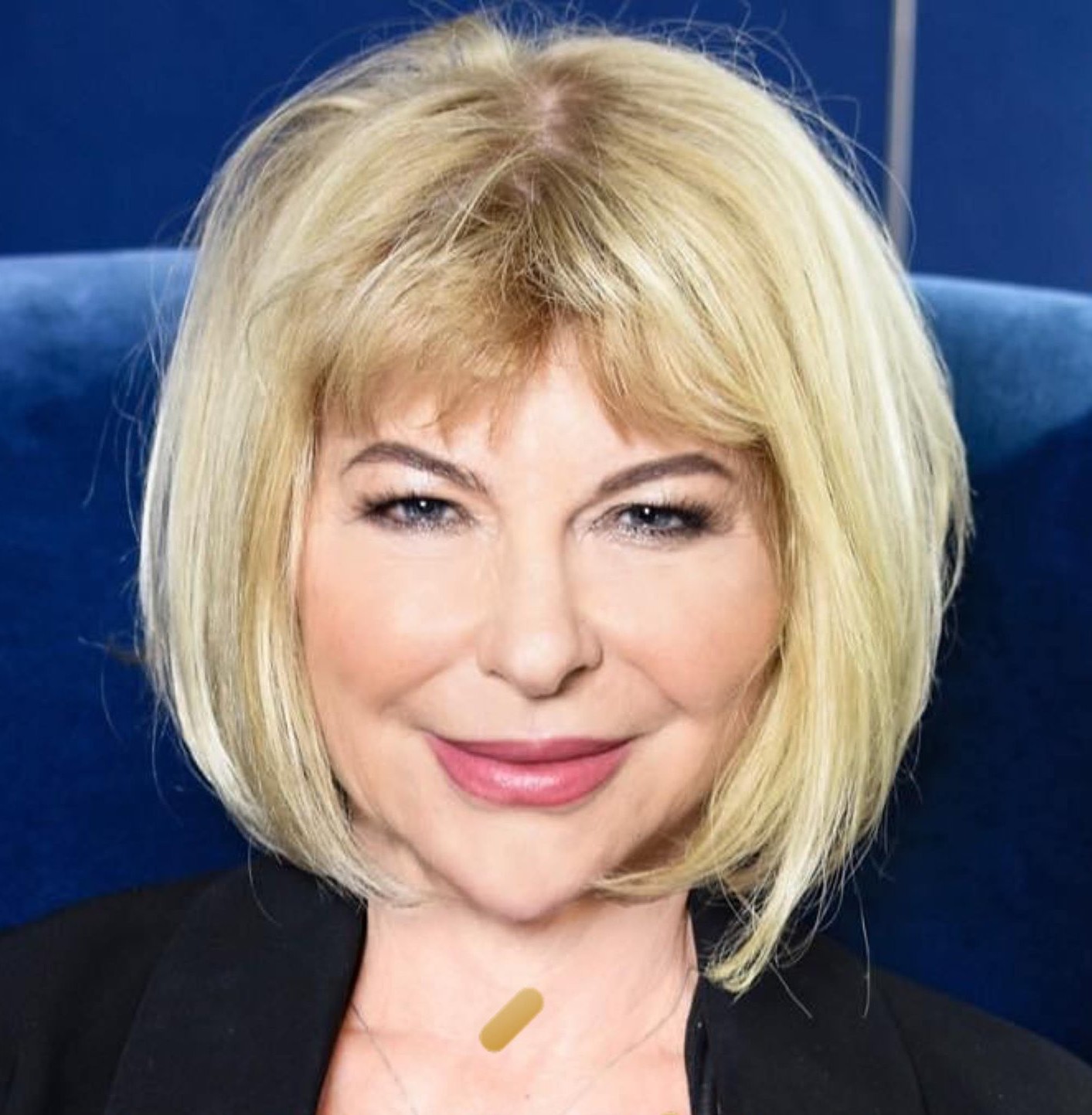




WARNING: THIS ARTICLE MAY CONTAIN SPOILERS
The Oscar Nominated and Bafta-winning British film was written some time before the #MeToo revelations and screened before the horror of the Sarah Everard kidnap, rape and murder in a leafy South London park in March 2021 – by a policeman off-duty. As we all recall the peaceful vigil demonstrators, mostly women, were treated brutally by the mostly male police. There was a public outcry, a demand for a change of culture which is not about an odd brutal incident but rather about the daily instance of women being the object of male unwanted attention at best and pure systematic violence at worst. This is the important context in which Promising Young Woman should be viewed and regarded.
The pre-title scene in the film is impressive. In it Cassie, the protagonist (Carey Mulligan) is about to be sexually exploited by the ‘nice’ predatory man who pretends to take care of her when she ap pears drunk at a night club. In this already classic scene, he is touching her inappropriately as he is moving down on her in order to – presumably – indulge in non-consensual oral sex and then rape. He is proceeding with his movement down her body and Cassie keeps protesting in an apparently semi drunken and confused way: but clearly saying ‘no’. He ignores this and repeats ‘you are safe’ when he clearly intends to rape her. The suggestion of the film is that he ignores it because he can, because, despite all the clear facts to the contrary, he might even be able to convince himself that she is somehow ‘into it’.
.
Young woman takes charge
So she keeps begging: ‘what are you doing? Stop. What are you doing?’ and he keeps ignoring her pleas. As the viewer keeps watching, the scene has an air of an episode from a horror film as what is to ensue appears both inevitable and nauseating, with the familiar trope of an innocent woman being in high jeopardy. But then, unexpectedly and triumphantly, the scene subverts the predicted and perhaps predictable sequence of events and becomes something entirely different. Carrie’s voice changes as she coldly and soberly lifts herself up and asks the man in a steely voice, completely in control, strongly and forbiddingly: ‘what on earth are you doing?’ And so, taken aback and surprised, brought back by her voice to the reality of the repulsive action, the man stops in his tracks – as do we all.
Cassie’s gaze, Medusa like, freezes the man and his desire to abuse the woman who, he does know at the very outset, was barely capable of any reaction. The male realises he was tricked. He is disempowered and literally unveiled. Her resolute action, her sober voice, changes everything and transforms in one fell swoop the whole structure of the scene. The woman reclaims the power and, without any violence, manages to make the man feel small and repulsive as he is. She wins. We, the viewers, win too. Hope remains – hope that it is but a question of a voice, of finding the right words at the right time, and all will be well – not only in this story and in this film but also in the world.
This is without a doubt a masterful scene. There are others of this nature in the film but this one is perfect because of its position in the film – just before it all unfolds: the editor ( presumably under the writer/director’s instruction) cuts out of the scene before the viewer can be certain that no violence ensues on the part of the woman, that her power lies in her gaze and her language alone and not in any actual threatening or violent action. When we realise that she achieved that power shift with no violence, this does feel like a triumph, a new kind of a triumph, in which both the method and the actual result are indeed non-patriarchal, as they are fluid, unexpected and strangely uplifting. This rupture which her icy freezing voice produces is perfect. This scene alone is worthy of a Bafta.

.
Falling into the patriarchal trap
The film narrative, however, becomes problematic. It is not because of some reviews’ questioning the credibility of the sequence of events, or Cassie’s new partner, or her criminal actions – although one can criticise all of this. The film eventually becomes a patriarchal cinematic text, despite its best intentions, because its main character’s narrative journey replicates the violence of the patriarchal structures she is trying to defeat. As a direct result of her destructive and vengeful plan, Cassie succeeds in her revenge but perishes herself. She dies. She is no more. That is what happens. This I argue feeds into a well–trodden path of the female character who challenges patriarchal systems but ends up being punished in the narrative of the cinematic world.
It is important to remember that the second wave feminist film scholars in the 1980s, including such giants as Elizabeth Cowie, Teresa de Lauretis, Judy Payne, questioned whether it was possible at all to tell non-patriarchal stories as all stories we are used to hearing are patriarchal. The hope was that with the arrival of female writers and directors, the stories that would be told would be different and that, for a start, the figure of a compliant and pleasant female character can be challenged.
.
Women get “nasty”
I have written of the rise of the “nasty woman” in cinema and culture, a figure created by a female writer and director, a character who becomes nasty in order to subvert the expectations of patriarchal structures and patriarchal society. This character is not nice. She is often unmarried. She has plenty of agency. She can be beautiful and is not scared to use her sexuality to her own advantage. I have suggested that this figure is created by female authors (writers, directors and producers) as a gesture of defiance. The “nasty woman”; who breaks codes of behaviour is not entirely new invention. In the 1940s and 1950s, film noir celebrated the femme fatale, a beautiful sexy woman, who appears to be function in the narratives as a counterpoint to the compliant female character.
Unfortunately, in these narratives such a nasty woman would inevitably be either domesticated or would somehow die by the end of the movie. Their subversive nature had to be punished in order for the patriarchy to keep going. In the more recent offerings in films authored by women this pattern has been reversed and ‘the nasty woman’ can be unexpectedly ‘nasty’ but is not killed off by the filmmakers, such as for example Maya in Kathryn Bigelow’s Zero Dark Thirty (2012), or Jackie in Andrea Arnold’s Red Road (2006), or Molly’s Game (Aaron Sorkin, 2017; written and produced by women even if directed by a man) or I Tonya (Craig Gillespie, 2018), or in the plethora of television detective and non-detective series such as How to Get Away with Murder, Fleabag, Killing Eve, Jessica Jones or, most importantly, I May Destroy You, a BBC drama series starred written and produced by Michaela Coel (pictured below). They cover a similar emotional territory to the Promising Young Woman: the trauma of rape. In the case of the Promising Young Woman, it is the rape of the main character’s friend, Nina. In I May Destroy You it is the lead Arabella.

Cassie versus Arabella
The two characters in the two pieces of work are very different but some qualities are similar: the rape casts a long shadow on their ability to function in society: Cassie drops out from the medical school, and Arabella is unable to write her novel, loses her publisher (who happens to be a successful black woman too). She too appears to be heading for a total disaster, like Cassie in Promising Young Woman, scheming an actual physical violent revenge. The significant difference between the two works is that in I May Destroy You the female character’s destructive fantasies stay where they belong – in the world of fantasy. Promising Young Woman takes Cassie out of the fantasy into the series of highly destructive gestures which spill out of a metaphorical revenge, of language and staged encounters, into actual criminal activities – and then she too dies, which for me is the film’s most significant flaw.
It is here where the issues around Promising Young Woman become insurmountable – the narrative replicates the familiar trope of the film noir with the femme fatale needing to be either domesticated or dead. Conversely, the finale of I May Destroy You is a triumphant sublimation of the anger and the pain which the work presents as being achieved through intersectional friendship, through talking, through forgiveness and, most importantly for the female protagonist, through the process of her creation, her writing, the process of storytelling and the defiant refusal to succumb to the demands of patriarchal storytelling, with neat endings and closed narratives.
Most importantly Arabella is not killed off by her writers, nor does she carry out her destructive revenge plans. The title significantly says ‘I May Destroy you’; she ‘may’ but she doesn’t have to and ultimately she does not destroy, she creates. Cassie, (Cassandra, (named after the Greek prophetess who could see bleak future), carries out her gloomy and violent morbid fantasies of revenge and destroys much, including herself in the process. The final resolution offers a familiar punishment to the subversive and dangerous heroine of the narrative, various other punishments notwithstanding. The film’s ending, for me, irrevocably, undermines the interesting effort of Promising Young Woman, making the work more patriarchal than it would ever care to acknowledge.





















